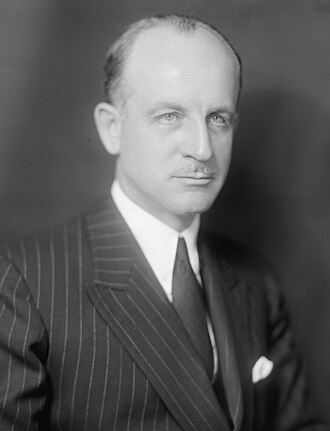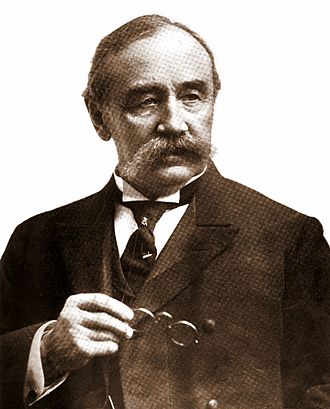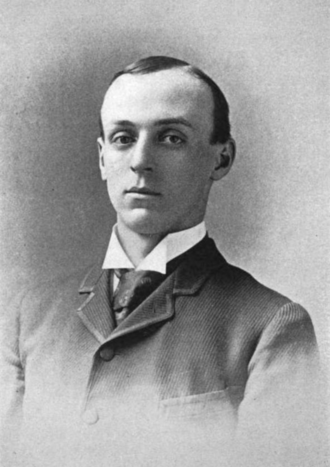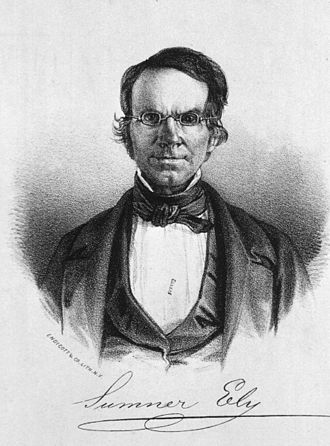Discover Your Roots
SIGN UPDiscover Your Roots
SIGN UPSumner is a compelling male name of Latin origin, meaning "Summoner." This name carries a sense of authority and power, reflecting its Latin roots. Noteworthy individuals bearing the name include Sumner Archibald Cunningham, an influential Confederate veteran and newspaper editor, and Sumner Redstone, the esteemed Chairman of Viacom. With its strong historical and cultural significance, Sumner has made its mark through prominent figures such as Sumner Paine, an Olympic shooting medalist, and Sumner Welles, a distinguished U.S. Undersecretary of State. The name Sumner exudes a sense of leadership and influence, making it a fitting choice for those seeking a name with a commanding and resolute connotation.

Benjamin Sumner Welles (1892 – 1961) was a prominent American government official and diplomat, known for his significant contributions to foreign policy during President Franklin D. Roosevelt's administration. Born into a wealthy and politically connected family in New York City, Welles graduated from Harvard College and embarked on a diplomatic career at the encouragement of Roosevelt, a family friend. He specialized in Latin American affairs and played a pivotal role in shaping diplomatic relations in the region. Welles' influence extended to European affairs as well, particularly during World War II. Notably, he issued the Welles Declaration, condemning Soviet occupation of the Baltic states. Despite his achievements, Welles faced controversy, including his dismissal from the foreign service due to personal reasons and a scandal that led to his departure from government service. Following his public career, he continued to write on foreign relations and served as an advisor to media organizations. Welles passed away in 1961, leaving behind a legacy of diplomatic prowess and influential contributions to American foreign policy.

Chief Sumner Karibi Dagogo-Jack, born in 1930, was the chairman of the National Electoral Commission of Nigeria (NECON) from 1994 to 1998, appointed by President Sani Abacha. He had previously served as a member of the Humphrey Nwosu electoral commission from 1989 to 1993. During his tenure, NECON was criticized for lack of impartiality and being controlled by Abacha. The commission registered five political associations, seemingly devoid of credible politicians, to ensure Abacha's sole presidential candidacy. Despite overstepping its authority, NECON conducted elections for local government councils and the National Assembly. Notably, Dagogo-Jack nullified the positions of elected officers shortly before the March 1997 local government elections. His tenure ended abruptly with the sudden death of Abacha in June 1998, leading to a fresh electoral process initiated by his successor, Abdulsalami Abubakar. Dagogo-Jack hails from Abonnema, in Rivers State, and has family members involved in medicine and governmental roles.

Sumner Increase Kimball (1834-1923) was a prominent figure in the United States Life-Saving Service, serving as its General Superintendent from 1878 to 1915. Hailing from Maine, Kimball initially pursued a career in law and politics, later transitioning to a distinguished role in the U.S. Treasury Department. His pivotal appointment as the head of the newly formed Life-Saving Bureau marked the beginning of his influential tenure. Under his leadership, the Life-Saving Service expanded its reach to the Pacific Coast and the Great Lakes, evolving into a well-trained and cohesive organization. Kimball's legacy is honored by the Coast Guard cutter USCGC Kimball (WMSL-756), a Legend-class cutter renowned for its extensive capabilities in law enforcement, coastal defense, and anti-terrorism efforts. Kimball's enduring impact on the U.S. Coast Guard is a testament to his remarkable contributions to maritime safety and security.

Sumner Paine (May 13, 1868 – April 18, 1904) was an American shooter who gained prominence for his participation in the 1896 Summer Olympics in Athens. Born in Boston, Paine was the son of Charles Jackson Paine, a Union Army general, and the brother of John Paine. Despite briefly attending Harvard University, Paine pursued a medical degree at the University of Colorado School of Medicine and later worked in Paris, France. At the 1896 Olympics, Paine and his brother were disqualified from the rapid fire pistol event, but excelled in the 25-metre military pistol and the 30-metre free pistol events, showcasing their shooting prowess. In 1901, Paine was involved in a scandalous incident when he fired shots at his wife's music teacher, leading to a brief jail term. Tragically, Sumner Paine passed away at the age of 35 due to pneumonia in Boston. His legacy lives on as an accomplished American shooter.

Sumner Ely (May 22, 1787 – February 3, 1857) was an American physician and politician from New York. He graduated from Yale College in 1804 and later became a licensed physician in 1809. Ely practiced medicine in Middlefield, New York, and served as Postmaster of Middlefield. He married Hannah Knapp Gilbert in 1816, and they had five sons, one of whom, William H. Ely, became an Assemblyman. Ely was also a brigadier general of the New York State Militia and a member of the New York State Assembly, representing Otsego County in 1836. Additionally, he served as a Democratic member of the New York State Senate from 1840 to 1843. His contributions are documented in various sources, including The New York Civil List by Franklin Benjamin Hough and the Transactions of the Medical Society of the State of New York. Sumner Ely's legacy as a dedicated physician and influential politician is remembered through his significant contributions to the state of New York.
All images displayed on this page are sourced from Wikipedia or Wikimedia Commons.We use these images under their respective Creative Commons or public domain licenses. Wherever applicable, author attributions and license information are provided. If you believe an image is used incorrectly or outside its license terms, please contact us so that we can review and correct the issue.